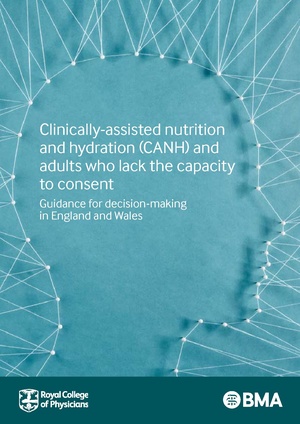| Display title | Royal College of Physicians and British Medical Association, 'Clinically-assisted nutrition and hydration (CANH) and adults who lack the capacity to consent' (12/12/18) |
| Default sort key | Royal College of Physicians and British Medical Association, 'Clinically-assisted nutrition and hydration (CANH) and adults who lack the capacity to consent' (12/12/18) |
| Page length (in bytes) | 1,249 |
| Page ID | 13978 |
| Page content language | en - English |
| Page content model | wikitext |
| Indexing by robots | Allowed |
| Number of redirects to this page | 0 |
| Counted as a content page | Yes |
| Page image |  |
| Edit | Allow only users with "editing" permission (infinite) |
| Move | Allow only users with "editing" permission (infinite) |
| Page creator | Jonathan (talk | contribs) |
| Date of page creation | 21:19, 13 November 2021 |
| Latest editor | Jonathan (talk | contribs) |
| Date of latest edit | 13:50, 25 May 2023 |
| Total number of edits | 5 |
| Total number of distinct authors | 1 |
| Recent number of edits (within past 90 days) | 0 |
| Recent number of distinct authors | 0 |
